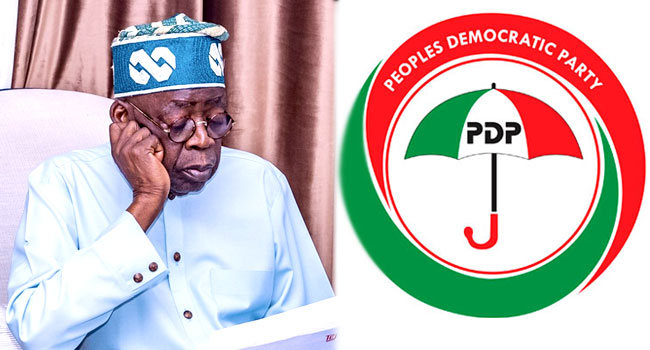Otuaro Hails Senate for Approving Federal Oil and Gas Hospital In Benikrukru
Immediate past Deputy Governor of Delta State, His Excellency Deacon Kingsley Burutu Otuaro, has lauded the Nigerian Senate for passing the bill to establish the Federal Oil and Gas Hospital in Benikrukru, Gbaramatu Kingdom, Warri South-West Local Government Area of Delta State.
In a letter of appreciation addressed to the President of the Senate, His Excellency Senator (Dr.) Godswill Obot Akpabio, on Wednesday, Otuaro described the passage of the bill as a historic legislative achievement that marks a turning point for healthcare delivery in oil-bearing communities of the Niger Delta.
He highlighted the strategic importance of Benikrukru as a host to numerous oil and gas facilities, stressing the need for a specialized medical institution to cater to the unique health and environmental challenges facing the region.
Read the full letter below:
To:� His Excellency, Senator (Dr.) Godswill Obot Akpabio, CON, � President of the Senate�,
Federal Republic of Nigeria�,
National Assembly Complex� Abuja, Nigeria
Your Excellency,
LETTER OF APPRECIATION FOR THE BILL'S PASSAGE TO ESTABLISH THE FEDERAL OIL AND GAS HOSPITAL, BENIKRUKRU.
With a deep sense of gratitude and fulfillment, I write to extend my heartfelt appreciation to you, Your Excellency, and the entire distinguished members of the Nigerian Senate for the successful passage—at the third reading—of the bill for the establishment of the Federal Oil and Gas Hospital, Benikrukru, in Gbaramatu Kingdom, Warri South-West local government area of Delta State, which happens to be my kingdom.
This historic milestone is not just a legislative victory—it is a major step toward correcting years of healthcare neglect in one of the most critical regions to our national economy.
The Benikrukruu axis, located in the heart of the Niger Delta, is home to a dense concentration of oil facilities, installations, and multinational oil and gas companies whose operations power the economic engine of Nigeria. It is, therefore, only just and necessary that a specialized medical institution be situated within this hub to provide swift, professional, and industry-specific healthcare services.
The Federal Oil and Gas Hospital, when fully established, will serve as a critical response center for oil-related occupational hazards, emergencies, and environmental health challenges that are unique to oil-producing communities. It will also cater to the general wellbeing of the hardworking people of the region who, for decades, have sacrificed their environment and livelihoods in the service of national prosperity.
Your Excellency, under your visionary and progressive leadership, the Nigerian Senate has again demonstrated its unwavering commitment to equity, development, and national balance. We are deeply encouraged by your support and the unity shown by the Senate in this legislative process.
Furthermore, we express our confidence in the leadership of the President of the Federal Republic of Nigeria, His Excellency, Asiwaju Bola Ahmed Tinubu, GCFR, a man renowned for his unwavering commitment to justice, inclusiveness, and development.
We are optimistic that he will promptly assent to this bill, knowing fully well the strategic importance of this hospital to the wellbeing of our people and the sustainability of Nigeria’s oil and gas industry.
Once again, I thank Your Excellency and the entire Senate for your statesmanship, compassion, and dedication to the progress of the Niger Delta and the nation at large.
Yours sincerely,
H.E. Dcn. Kingsley Burutu Otuaro, Esq. FSPSP.
Immediate Past, Deputy Governor,
Delta State.
7/23/2025, 9:54:41 AM
views 13706
6689







